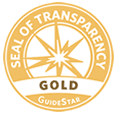Navigating Employment Challenges for Veterans
November is National Career Development Month, a time to focus on career growth, new opportunities, and overcoming obstacles in the job market. For Veterans, transitioning from military to civilian careers can present unique challenges, but it also offers incredible opportunities. This month is the perfect time for Veterans to explore career options, set goals, and tap into resources tailored to their specific needs.
Veterans and Employment Challenges
While Veterans possess valuable skills—leadership, discipline, and problem-solving among them—many struggle to translate their military experience into civilian roles. Common challenges Veterans face in the job market include:
- Skill Translation: Military skills don’t always have a clear civilian equivalent, leading Veterans to feel misunderstood by potential employers.
- Gaps in Employment: Time spent in service or medical leave can create gaps on a resume, raising concerns for hiring managers.
- Adjusting to Civilian Workplace Culture: The military’s structured environment differs from the often less-defined corporate world, making the transition difficult for some Veterans.
- Mental Health and Physical Injuries: PTSD, mTBI, or other service-related conditions can make finding and retaining employment difficult.
Employment Tips for Veterans
- Translate Military Experience: Create a civilian-friendly resume. Break down your military roles and highlight how those skills can benefit civilian employers. Focus on leadership, teamwork, and adaptability.
- Pursue Certifications: In some industries, military training may not directly translate to civilian qualifications. Seek certifications that can bridge the gap between your military experience and civilian job requirements.
- Leverage Networking: Utilize Veteran networks and LinkedIn to connect with others who have successfully transitioned into civilian careers. Attending career fairs and joining Veteran-specific professional organizations can also provide valuable job leads.
- Prepare for Interviews: Practice explaining how your military skills apply to the position you’re seeking. Focus on transferable skills like leadership, teamwork, problem-solving, and perseverance.
- Seek Support: Don’t hesitate to lean on Veteran-focused career resources for help with your resume, interviewing, and job search.
Resources for Veterans
- Veteran Readiness and Employment (VR&E): This VA program helps Veterans with service-connected disabilities prepare for, find, and maintain suitable jobs. It offers career counseling, resume writing support, and assistance with job-seeking skills.
- Hire Heroes USA: This nonprofit provides free career coaching, resume assistance, and job placement support specifically for Veterans and their spouses.
- Veterans Employment Center (VEC): Offered through the VA, this online portal provides a one-stop shop for Veterans looking for employment resources, including resume builders and job listings.
- SkillBridge Program: Offered through the Department of Defense, SkillBridge connects transitioning service members with civilian training, apprenticeships, and internships during their last 180 days of service.
- U.S. Chamber of Commerce’s Hiring Our Heroes Program: This program connects Veterans with employers and hosts nationwide career fairs. They also offer a Corporate Fellowship Program, providing work experience to transitioning service members.
- American Corporate Partners (ACP): ACP offers one-on-one mentoring for Veterans, helping them develop a career plan, set goals, and connect with leaders in their industry of interest.
These resources and programs emphasize the power of Veterans helping Veterans—from mentorship to networking, there’s a strong community dedicated to supporting you throughout your career journey.
Take Charge of Your Career Development
This National Career Development Month, Veterans have a chance to invest in their future by exploring career paths that align with their values, skills, and experiences. Utilize available resources, prepare thoughtfully, and take advantage of the strong support network that exists for Veterans. The transition may be challenging, but the right career is out there waiting for you.
Share your favorite employment resources or career development tools in the comments below to help fellow Veterans!






